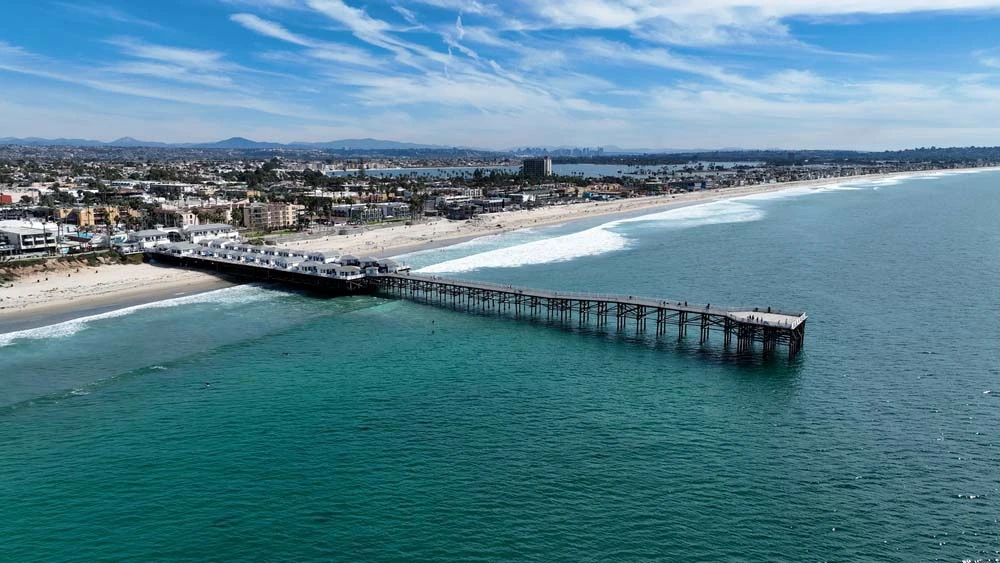On July 1, 2022, short term rentals San Diego ordinance under the Short-Term Residential Occupancy (STRO) program. These regulations require hosts to obtain licenses and adhere to strict limits on the short term lease apartments San Diego. The San Diego short term rental ordinance is made to balance the demands of tourism with the quality of life and housing affordability for its residents.
These San Diego short term rental regulations 2025 require hosts to obtain licenses and adhere to strict limits on the rental of properties. Whether you’re using Airbnb Property Management or any vacation rental property management, understanding San Diego Airbnb regulations 2025 is important for a legally compliant hosting.
This short term rental guide for San Diego short term rentals will walk you through the licensing system, discuss tax and enforcement details, and offer practical advice for anyone considering entering the vacation rental property management.
Does San Diego allow Short-Term Rentals
San Diego Airbnb rules do allow short-term rentals, but under a rigorous and highly regulated structure set by the short term rental ordinance. To operate legally, you must
- Obtain STRO License
- Register for a Transient Occupancy Tax (TOT) Certificate
- Register and pay the annual Rental Unit Business Tax (RUBT)
- Comply with all “Good Neighborhood Standards”
Failure to comply with these rules can result in significant administrative hurdles and pay penalties.
What are the San Diego Short Term Rental Regulations 2025?
Short term rentals in San Diego are defined as any residential unit, or part of one, rented for less than one calendar month. Unlike most California cities that use a 30-day cutoff, San Diego uses the term “one month”, which is defined as the period from the first calendar day of the occupancy in any month to the same calendar day in the next month following, or the last day of the next month if no corresponding day exists.
To manage the growing number of rentals and address community concerns, the city has introduced a four-tiered licensing system, along with related business and tax requirements. The core of the current system, in effect since May 2023, is the Short-Term Residential Occupancy (STRO) Ordinance. It establishes a mandatory licensing system with four tiers and places a firm cap on whole-home, non-primary residence rentals outside Mission Beach.
Understanding Short Term Rental Guide: San Diego STRO Four License Tier

To legally operate, every host must obtain a City STRO license. San Diego issues four different STRO license types. Each tier defines the extent and manner in which a host can operate a short-term rental or Airbnb rental management.
Tier One: Part-Time License
This allows San Diego short term rentals to be rented or occupied for no more than 20 days per year. The host does not need to reside on-site during the rental.
Tier Two: Home Sharing License
This is renting a room or rooms in your primary residence for more than 20 years per year. The host must reside on-site during the stay but can be away for up to 90 days per year. Additionally, the host must reside at the property at least 275 days annually. Home sharing applies to duplexees, accessory dwelling units (ADUs), and granny flats.
Tier Three: Whole Home (Excluding Mission Beach)
This is where renting your entire unit for more than 20 days per year\ without needing to stay onsite. However, rentals must be a minimum of two (2) nights in duration. Licenses under this tier are capped at 1% of the total housing units in the city, excluding Mission Beach.
Tier Four: Mission Beach Whole Home
In Mission Beach, whole-home rentals are permitted under this special tier. It allows renting the entire home for more than 20 days per year. Like Tier Three, rentals must be a minimum of two (2) nights, and licenses are capped at 30% of the neighborhood’s total housing units.
How to Get San Diego STRO License: Step-by-Step

Before you can even apply for an STRO license, you must have two (2) things in place:
Transient Occupancy Tax (TOT) Certificate
This permit allows you to collect and remit the City’s Transient Occupancy Tax. The TOT rate for San Diego is 10.5% of the gross rental amount for stays under one (1) month.
You may apply online via the City’s Transient Occupancy Registration System (TORS). Most major platforms virtual property management or Airbnb management company collects and remits the TOT on your behalf, but you are still legally required to register and file quarterly returns for reconciliation.
Rental Unit Business Tax (RUBT) Account
It is a mandatory annual business tax required for anyone renting out residential real estate in San Diego for more than six (6) days annually.
Additional requirements
If the host is not the property owner, the following document is also required:
- Business Tax Certificate
- Right to Occupy Document
The STRO application Process
Once you have your requirements, you can apply through the City STRO Licensing Portal. The process generally involves:
- Determining your Tier based on your property type and rental intent.
- Providing Contact Information for both the Host and a mandatory 24/7 local contact.
- Upload all the required documents.
- Pay the necessary fees. Fees may vary depending on the tier.
Take note that if you’re not the owner, you must obtain a Business Tax Certificate. If you’re considering this, an experienced provider of Airbnb Management San Diego, Airbnb Management Los Angeles, or short term rental management can help you handle the entire process, ensuring compliance from day one.
Key License Rules Every Host Must Follow
- Each host is allowed only one active license at any time.
- A host cannot operate multiple STR units under different tiers.
- Licenses are non-transferable and are only valid for the approved unit.
- License applications must be complete, including:
- A valid Transient Occupancy Tax Certificate or proof of application.
- Payment of Rental Unit Business Tax, if applicable.
- Proof of primary residency for applicable tiers.
Applications will be denied if a host has had their license revoked within the past 12 months or is currently under active enforcement action with the City.
The Short Term Lease Apartment San Diego’s Caps and Limits
San Diego Airbnb laws headline is a cap on whole-home short-term rentals. San Diego limits whole-home STRs citywide to 1% of the housing stock. In Mission Beach, which has a dense vacation-rental market, the cap is 30% of the neighborhood’s housing stock. Each host is limited to only one (1) license. The cap system makes licenses quite competitive, especially in high demand areas like Mission Beach.
So, it is essential for short term apartments San Diego to identify what category they belong to.

The era of easy profits from unregulated short term rental regulations San Diego is over. The current San Diego Airbnb laws, with its caps, lottery system, and strict operational requirements, is designed to favor homeowners who use their property as their primary residence and limit the impact of investments properties.
For those who secures a whole-home license, the operational complexity is high. So it is better to ask for assistance from an experienced Airbnb rental management company. Whether you are planning to invest for a short term apartments San Diego or any other short term lease apartments San Diego, it is advisable to partner with a trusted Airbnb management company or Airbnb rental management company for an efficient Airbnb property management.
